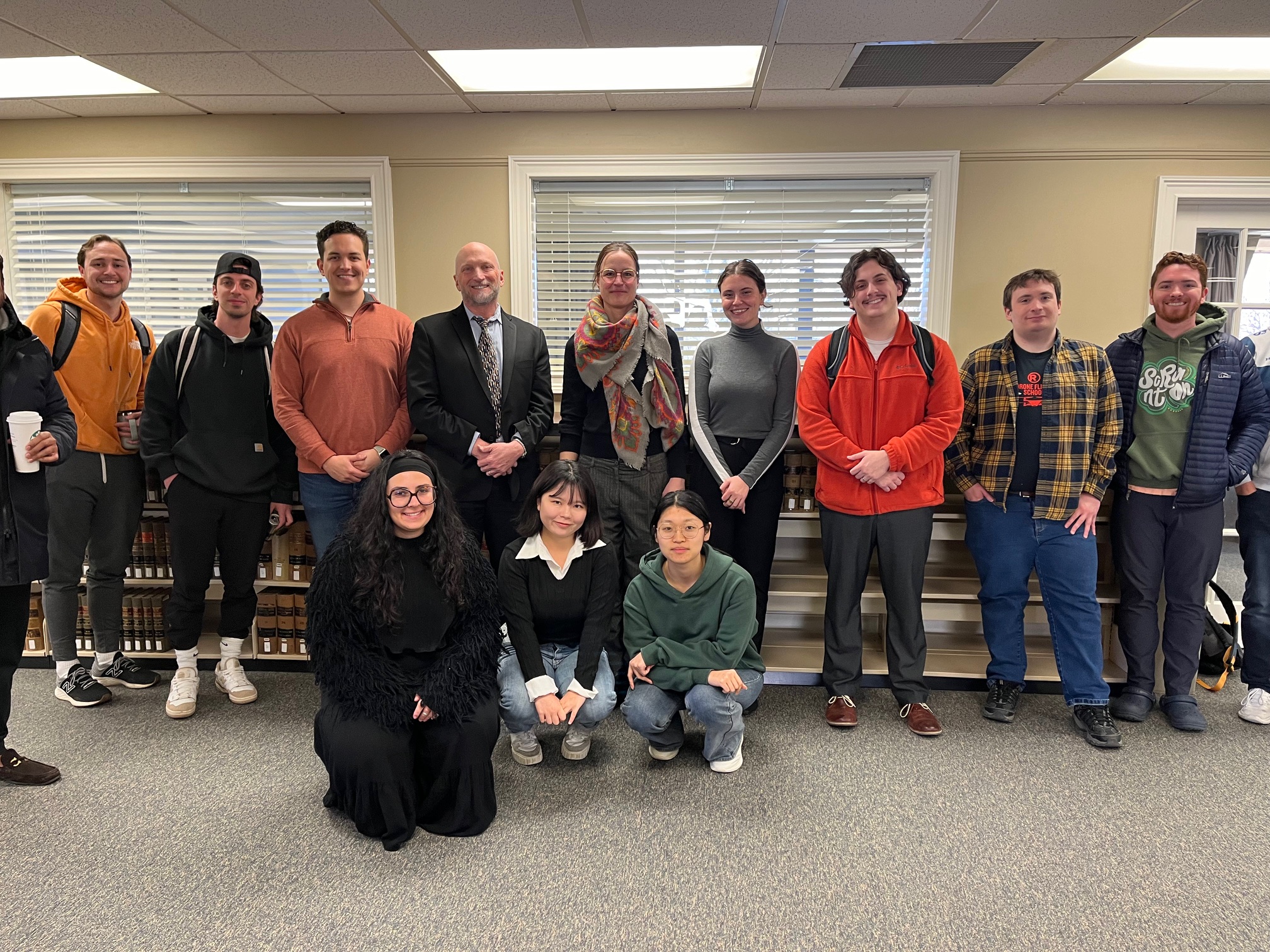Law Seminars at Delaware Law: Expanding Student Horizons
6/25/2024

Delaware Law School offers a wide range of seminars that cover diverse and critical areas of law, including Advanced Fourth Amendment Law, Dignity Rights, Domestic Violence, Law and Inequality, Law and Poverty, and Public Health Law and Inequality. These courses allow students to explore specific legal issues in-depth, often involving substantial research, writing, and interactive discussions.
Law seminars focus on discussion, debate, and analysis of complex legal issues, helping students develop critical thinking, analytical, research, writing, and communication skills. By engaging deeply with niche or emerging areas of law, students can explore potential specializations and enhance their expertise. Seminars, usually led by experts in the field, offer direct access to their knowledge and professional networks. The interactive nature of seminars encourages active participation, fostering a dynamic learning environment and providing valuable networking opportunities with peers, professors, and guest speakers. The skills and insights gained from these seminars are directly applicable to legal practice, better preparing students for their future careers as lawyers, advocates and leaders in their communities.
Taught by Justice Gary F. Traynor of the Delaware Supreme Court, Advanced Fourth Amendment Law, explores how the fourth amendment protects people from unreasonable searches and seizures by the government. The seminar challenges students to conduct in-depth analyses of search-and-seizure topics, including exceptions to the exclusionary rule, standing, stop-and-frisk, the lawful parameters of traffic stops, and independent state constitutional provisions, culminating in a substantial research paper. Additionally, the Dignity Rights seminar explores human rights through the lens of human dignity, engaging students with distinguished scholars and practitioners.
Delaware Law School recently highlighted the crucial role of law seminars in enriching the educational journey of its students, showcasing how these seminars can significantly enhance both academic and personal growth. Distinguished Professor James May’s seminar on climate rights and justice exemplifies this impact. His course explored how climate rights in America and across the globe can advance climate justice—the idea that everyone, everywhere, is entitled to a stable climate. For instance, by discussing urban climate change in Wilmington’s Southbridge neighborhood, this course connected students to the climate challenges of the city’s urban environments.
By providing tangible examples, May’s seminar demonstrated how their engagement goes beyond traditional learning methods. The seminar not only delved into critical environmental issues but also empowered students to realize their potential in driving classroom discussions and research initiatives. This unique approach demonstrates that professors aren't the sole educators in these settings; students themselves can contribute significantly to the learning experience by sharing their insights and findings.
One standout student, Jamie Rubin, exemplified the seminar's impact. His deep-rooted connection to Wilmington and comprehensive research inspired his peers to engage deeply with the subject matter. Rubin's leadership and collaborative efforts underscored the seminar's value in fostering a community of learners who support and educate one another.
“Delaware’s legal systems work proactively to protect vulnerable populations and where grassroots movements drive policy change,” said Rubin. “By addressing the root causes of inequality and environmental injustice, Delaware can become a model for climate justice and social equity.”
By providing opportunities to explore niche legal topics, these seminars allow students to pursue their passions beyond the standard curriculum, potentially guiding them toward unique career paths and public service roles. This aligns with the broader mission of the law school to cultivate leaders capable of addressing complex societal issues. Through these dynamic learning experiences, students gain not only academic knowledge but also the leadership and collaborative skills essential for their future careers.
